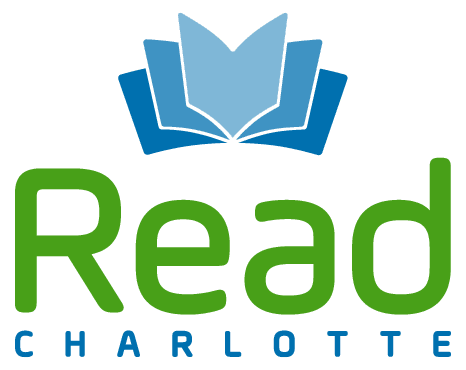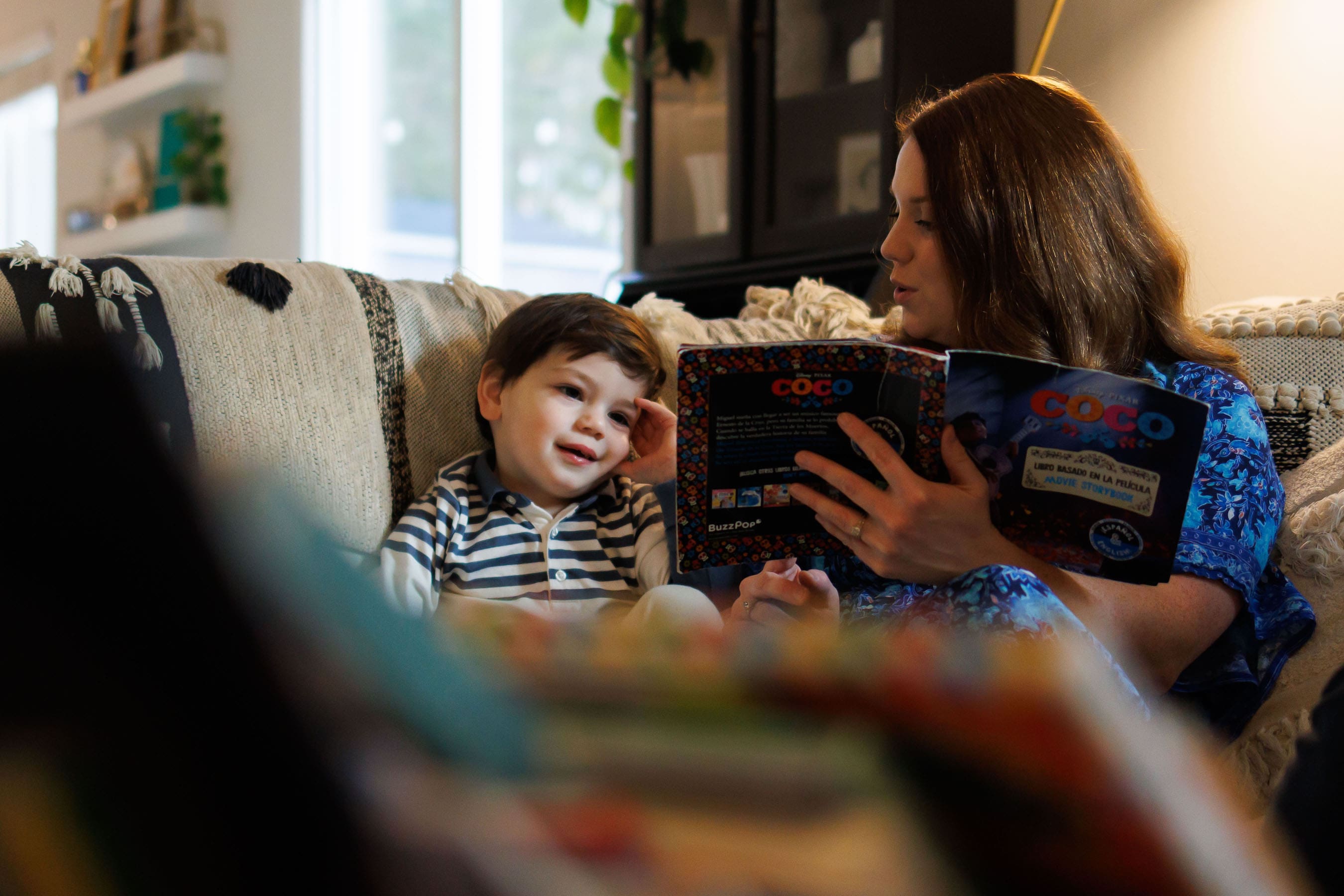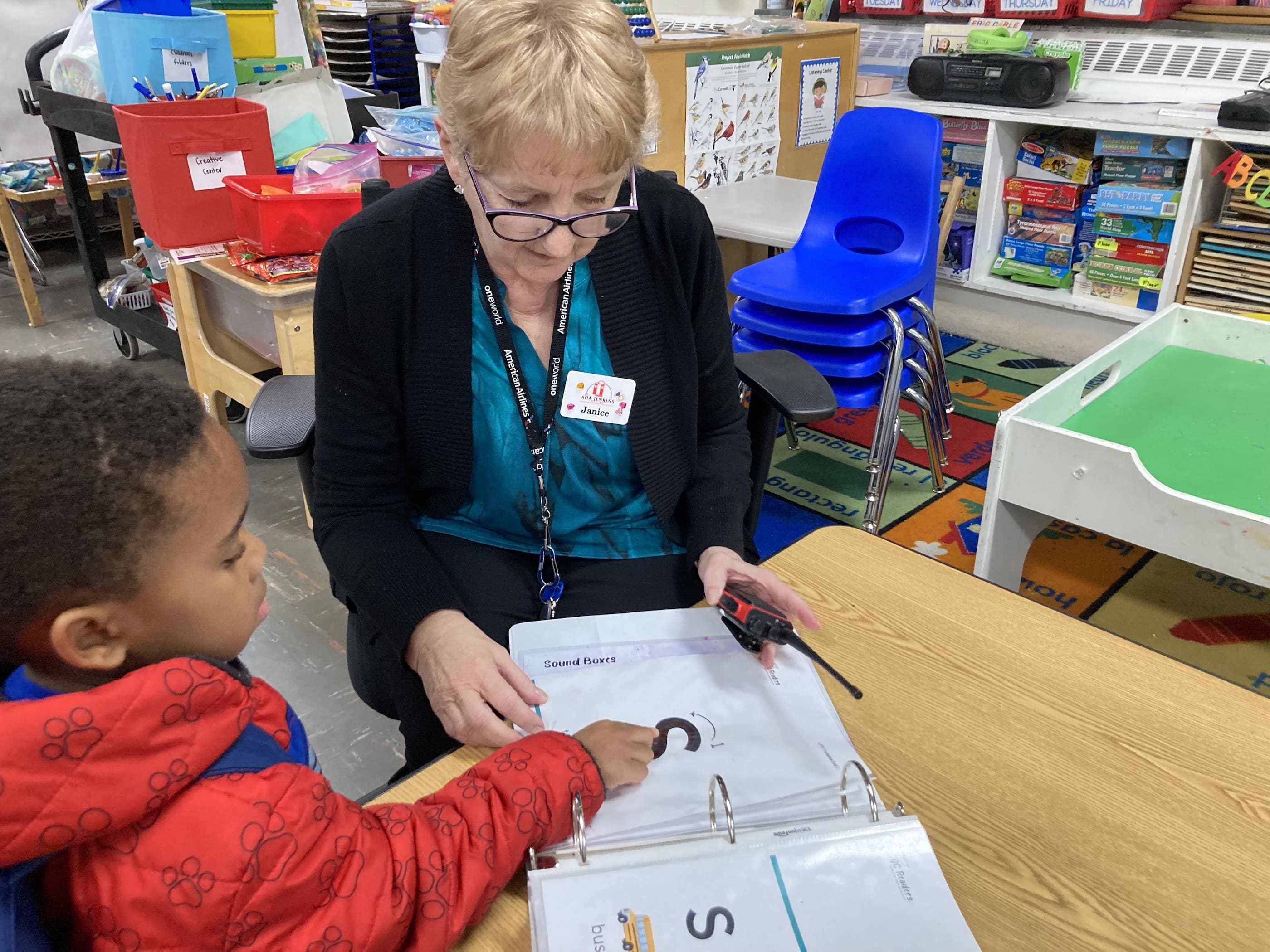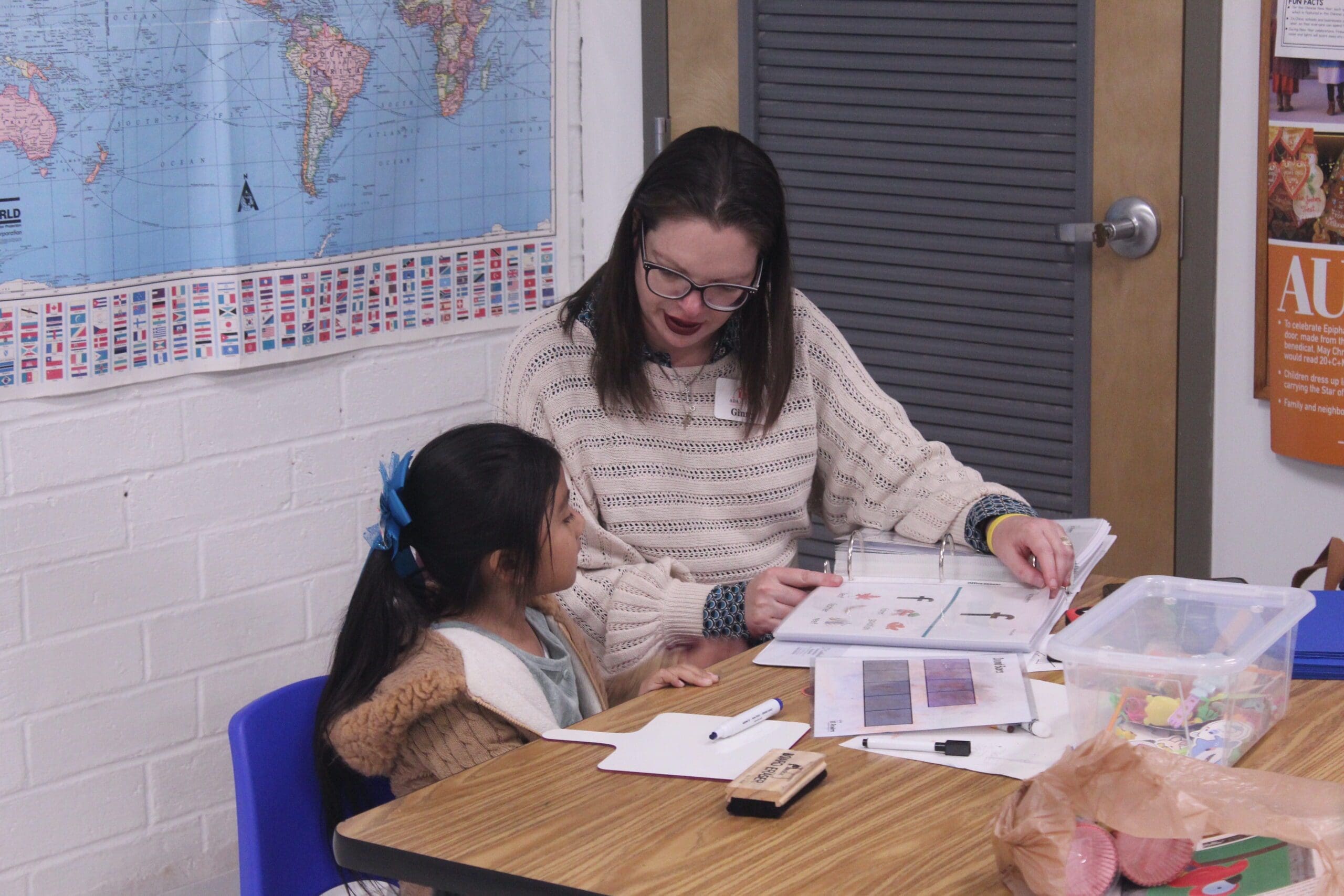
By Whitney Stein
Parents and caregivers are children’s first teachers, laying the groundwork starting at birth for literacy skills later in life.
And so it follows that one of the cornerstones of our work at Read Charlotte is family empowerment: providing families with the knowledge, confidence, and resources to support literacy at home. We work to find, create, and promote user-friendly resources that help parents meet the individual reading needs of their children.
Here are five great resources that help build literacy at home.
Reading Checkup
All families want their children to be the best readers they can be, and Reading Checkups can help them get there.
ReadingCheckup.org gives families a quick, simple, and free way to learn their PreK-3rd grade child’s reading level, and then provides literacy-building activities tailored to support each child’s growth.
Children take two short quizzes, and then families get results and recommended activities to practice at home. Read Charlotte curated or created nearly 400 skill-building activities for the tool, with the focus of using everyday moments and supplies to make the activities as accessible as possible.
After six weeks, children take the quizzes again and get updated results and activities that reflect new skills gained.
Home Reading Helper
Ease of use is key for busy families, which is why Read Charlotte created HomeReadingHelper.org as a simple, streamlined resource for families looking for ways to support their child’s reading development at home.
The website features literacy-building videos, activities, games, and more, all sortable by grade level and specific skill. The activities are centered around the idea that children can learn valuable skills through small, teachable moments in a normal day (no expensive supplies or labor-intensive prep required!).
The site’s content is focused on PreK through 3rd grade, and covers both on-level and struggling readers.
Active Reading
What and how often parents read to children are important, but so is how they read! Active Reading is a way to read with children, rather than to them, which means talking about the stories and topics in books. An easy way to do this is with the ABCs of Active Reading.
A: Ask questions. Asking questions when reading with a child helps deepen understanding. Ask about what’s happening in the story, or what will happen next. Be sure to pause and wait while the child thinks about an answer.
B: Build vocabulary. Active Reading teaches words that we don’t use every day. Choose a few words in a book or chapter and teach them as a three-step process: create a kid-friendly definition, use the story or pictures to talk about the word, and help the child connect the word to their experience.
C: Connect to the child’s world. Making connections while reading helps with comprehension and makes reading relatable and fun. Encourage this by starting conversations around the child’s connections with a story, character, or fact.
Visit our Active Reading page to learn more and watch short videos on the ABCs of the practice, or sign up for an Active Reading workshop with Charlotte Mecklenburg Library.
Dolly Parton’s Imagination Library
Engaging, age-appropriate books can help build children’s excitement about reading.
Dolly Parton’s Imagination Library was launched to foster that excitement and a love of reading by ensuring every child has access to high-quality books. The program provides a free book each month to Mecklenburg County children until their fifth birthday. The books are mailed directly to families’ homes.
Mecklenburg County’s program is run through Smart Start of Mecklenburg County. To enroll, click here.
Ready4K
The importance of incorporating learning into everyday activities is well known, but coming up with new ideas can be difficult!
That’s where Ready4K comes in: it’s a research-based text-messaging program for parents with young children. Each week, parents get tips, advice, and activity ideas to boost learning by building on existing family routines sent right to their phones.
The program, which is run by Smart Start of Mecklenburg County, is free, though data and message rates do apply. To sign up, click here.



